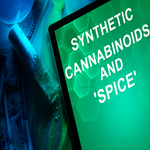Synthetic drugs, such as bath salts and synthetic marijuana, are a growing concern in the United States, with use on the rise. In an attempt to combat the problem, a bipartisan bill was introduced that would add over 200 compounds commonly used in the production of synthetic drugs to the Schedule I drug list. What’s more, recent crackdowns on synthetic drugs by federal agencies has resulted in more than a hundred arrests across the country, the Associated Press reports.
Since July, the Drug Enforcement Agency (DEA) and other state and federal agents have arrested 151 people for crimes involving synthetic drugs in 16 states. The DEA’s “Project Synergy” seized over $15 million in cash and assets from synthetic drug manufacturers and purveyors, according to the article. Synthetic drugs are inexpensive and are often undetectable by common drug tests, making the products popular. These types of drugs are unpredictable, and the side-effects can require medical attention.
Popular synthetic drug names include:
- Spice
- K2
- Flakka
- Ivory Wave
- Vanilla Sky
“These drugs are, in my judgment, more serious than the drugs that are on the Controlled Substance Act, more dangerous,” said bill co-sponsor Eleanor Holmes Norton, a Democrat who represents Washington, D.C. “These are right out in the open. They’re disguised in colored wrapping with snappy names to appeal to young people and children in particular. They are cheap. Much cheaper than the dangerous drugs like cocaine and heroin. They’re sold everywhere. And drugs that are sold everywhere are presumed to be safe. They are openly marketed as an alternative to dangerous drugs and they have bizarre effects.”
__________________________________________________
If you are or a loved one is abusing synthetic drugs, please contact Harmony Foundation to begin the journey of recovery. Harmony is a state-of-the-art, affordable, residential addiction treatment program located in the Rocky Mountains.
Addiction and recovery news provided by Harmony Foundation.







 Federal agents arrest ‘designer drug’ makers in nationwide raids
Federal agents arrest ‘designer drug’ makers in nationwide raids